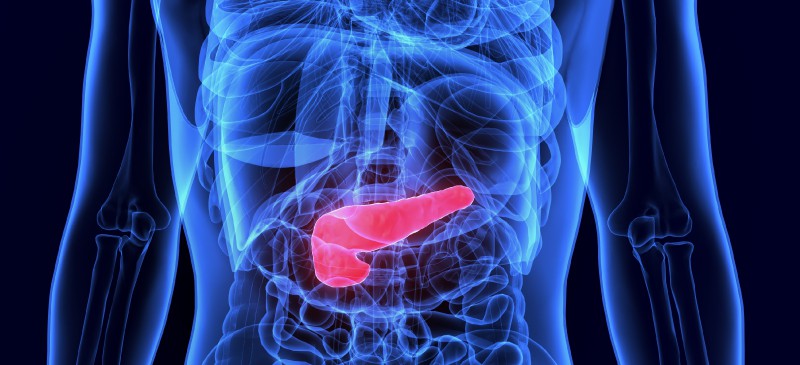This Dr. Axe content is medically reviewed or fact checked to ensure factually accurate information.
With strict editorial sourcing guidelines, we only link to academic research institutions, reputable media sites and, when research is available, medically peer-reviewed studies. Note that the numbers in parentheses (1, 2, etc.) are clickable links to these studies.
The information in our articles is NOT intended to replace a one-on-one relationship with a qualified health care professional and is not intended as medical advice.
This article is based on scientific evidence, written by experts and fact checked by our trained editorial staff. Note that the numbers in parentheses (1, 2, etc.) are clickable links to medically peer-reviewed studies.
Our team includes licensed nutritionists and dietitians, certified health education specialists, as well as certified strength and conditioning specialists, personal trainers and corrective exercise specialists. Our team aims to be not only thorough with its research, but also objective and unbiased.
The information in our articles is NOT intended to replace a one-on-one relationship with a qualified health care professional and is not intended as medical advice.
Trypsin: Do You Need More of This Enzyme?
November 1, 2018

It happens naturally by our bodies every day — protease in our digestive system, like trypsin, work to break down proteins. Perhaps this sounds like a simple task, but it’s actually a multifaceted process called proteolysis.
This important process requires trypsin, a proteolytic enzyme that’s released by the pancreas and works to break long protein chains apart into smaller pieces. We need this process to take place in order to maintain the health of our digestive, immune, metabolic and cardiovascular systems.
That’s exactly why you see digestive enzyme supplements containing trypsin gaining popularity. For people with digestive issues or problems with their pancreatic health, trypsin supplements can be helpful. Can you benefit from adding digestive enzymes into your diet or taking a supplement?
What Is Trypsin?
Trypsin is a proteolytic enzyme that is produced in the pancreas. Enzymes act as catalysts that accelerate biochemical reactions. They help to break down proteins into amino acids, which is an important part of the digestion process.
First, an inactive form of trypsin, called trypsinogen, is produced in the pancreas. Then the zymogen trypsinogen enters the small intestine and is converted into active trypsin. In its active form, it works with two other digestive proteinases, chymotrypsin and pepsin, to break down the proteins found in foods into peptides and amino acids. Trypsin cleaves exclusively to arginine and lysine, and the trypsin cleavage occurs within the polypeptide chain. (1)
Why are proteolytic enzymes so important? When we don’t produce enough trypsin and other protease enzymes, proteins from the foods we eat aren’t broken down properly. This can lead to an array of health issues associated with our digestive, metabolic and immune systems.
The process of breaking down the long, chainlike molecules of proteins is called proteolysis. During this process, protein molecules are broken down into shorter fragments, called peptides, and eventually into peptide components, called amino acids. We need these amino acids for everyday bodily processes, including the proper growth and repair of our muscles and tissues.
Protease enzymes allow for the proper function of the digestive system, immune system, liver, spleen, kidneys, pancreas and bloodstream. They allow for the proper absorption of essential vitamins and minerals, and they play a role in maintaining metabolic function.
Benefits and Uses
1. Improves Osteoarthritis
Trypsin can be taken in combination with bromelain and rutin to improve the symptoms of osteoarthritis or degenerative joint disease.
A double-blind prospective randomized study conducted at the Pakistan King Edward Medical College Lahore’s Mayo Hospital and published in Clinical Rheumatology showed that when Wobenzym, an orally administered combination of proteolytic enzymes and bioflavonoids, was used by patients with osteoarthritis of the knee and hip, its benefits were equivalent to those produced by the nonsteroidal anti-inflammatory drug (NSAID) diclofenac. (2)
2. Aids Digestion
It is the job of trypsin, and other protease enzymes, to break down proteins in the food that we eat and convert them into peptides and then amino acids. If you aren’t producing enough of this enzyme or other enzymes, you may experience digestive problems after eating, like cramping, gassiness and abdominal pain. (3)
3. Improves Wound Healing and Tissue Repair
Proteolytic enzymes have been used to promote tissue repair since ancient times. Trypsin, used in combination with chymotrypsin, can be applied directly to the skin to help remove dead tissue from wounds and speed up the healing process. The two enzymes work to reduce inflammatory symptoms and promote speedier recovery of acute tissue injury, according to research out of India published in Advances in Therapy. (4)
Trypsin can also be used for mouth ulcers. Research out of the Department of Pharmacy Practice at the University of South Carolina’s College of Pharmacy shows that using a spray that contains trypsin, Peru balsam and castor oil promotes tissue healing in ulcers of the oral mucosa, or mucous membrane that’s lining the inside of the mouth. (5)
4. Supports Immune Function
Research published in Nutrition Review shows that trypsin and other proteolytic enzymes, like bromelain, papain and chymotrypsin, are essential regulators and modulators of the body’s inflammatory response. They help to reduce the swelling of the mucous membranes, decrease capillary permeability and dissolve fibrin deposits that cause blood clots.
These enzymes work to degrade pathogenic complexes that consist of an antigen bound to an antibody. This is a perfectly normal part of the immune response, but when these complexes occur in excess, it can lead to major health problems, like certain kidney diseases, rheumatologic diseases and nerve inflammation. (6, 7)
Consuming foods or supplements containing trypsin can be used for a number of health concerns. It’s common for this enzyme to be used for the following: (8)
- To improve the digestive process, it is taken orally with other digestive enzymes, including lipase and amylase.
- To relieve symptoms of osteoarthritis, the enzyme is taken orally with bromelain (another protease) and rutin (a type of flavonoid).
- To promote wound healing, it is used topically to cleanse the area of dead (necrotic) tissue and debris and clean infections, such as decubitus ulcers (bed sores).
- To help treat mouth ulcers, a topical prescription aerosol product containing trypsin, Peru balsam and castor oil is used to promote healing.

Sources
Trypsin is produced in the pancreas of humans and animals. To make trypsin supplements, it’s usually extracted from pigs and ox. Supplements often contain a mixture of proteolytic enzymes, including trypsin, chymotrypsin, bromelain and papain. The amount of trypsin present in these digestive enzyme supplements will vary depending on the product.
While it can be helpful to use trypsin supplements, it can be problematic to consume trypsin inhibitors, which are found in most grain-containing products, like breads and cereals, and legumes, like chickpeas, soy beans and lima beans.
Trypsin inhibitors reduce the biological activity of the enzyme, making it more difficult for the body to break down proteins and absorb nutrients properly. Eating these danger foods that contain antinutrients (like phytic acid) can be especially damaging to people with reduced pancreatic function and young children who are at risk of mineral deficiencies. (9)
Supplements and Dosage
When our bodies are functioning properly, our digestive systems generates trypsin on their own. But for people who have issues digesting proteins because of a lack of enzymes in the body, taking trypsin supplements may be helpful.
Trypsin supplements are usually extracted from the pancreas of livestock, such as pigs. As I mentioned before, you often see it in proteolytic enzyme supplements that contain other proteases, including trypsin, chymotrypsin, bromelain and papain. These supplements are usually made with an enteric coating that consists of an acid-resistant substance, which protects it from the acidic stomach environment and allows it to dissolve in the intestine.
The dosage for trypsin supplements will vary depending on the product, especially if the supplement is a combination of many digestive enzymes. It’s important to read the directions on the label to determine the appropriate dose for you. And if you are using digestive enzyme supplements to correct a digestive problem, seek the guidance of your health care provider for proper dosage.
You will also find FDA-approved prescription products containing trypsin, along with Peru balsam and castor oil, that’s to be used for wound healing. These products include Dermuspray, Granulderm, Granulex and GranuMed. For the proper dosage of these products, consult your physician or pharmacist. (10)
Signs You Need More
If you are having trouble digesting proteins and need more trypsin or digestive enzymes, you may experience symptoms like gassiness, cramping, stomach pain and fatigue after eating.
If your pancreas isn’t producing enough, you may also experience malabsorption, which can lead to nutrient deficiencies. Nutrient deficiencies can cause a host of health concerns,, so it’s an issue that you want to address quickly.
Another complication of low or inadequate trypsin levels is inflammation of the pancreas, or pancreatitis. If you are experiencing pancreatitis symptoms, like a swollen and tender abdomen, nausea, fever, and upper abdominal pain, you should have your blood trypsin levels checked.
Trypsin supplements are made from extracted enzymes from the pancreas of livestock. If you are looking to get more digestive enzymes in your diet, they are available in some fruits and vegetables and fermented foods. Raw and fermented foods are naturally richer in enzymes. Some of the best high-enzyme foods include pineapple, papaya, kiwi, ginger, sauerkraut, kimchi, yogurt, kefir, apple cider vinegar, avocado and miso soup.
Digestive Enzyme Recipes
If you’re looking to consume more enzyme-rich foods, there are a ton of recipes to choose from. Basically, eating any meal with fermented foods is a great way to start. It’s also helpful to your digestion to add raw fruits and vegetables to your diet. Here are some easy digestive enzyme recipes to get you started:
- Miso Soup Recipe with Mushrooms
- Sauerkraut Recipe
- Strawberry Papaya Smoothie Recipe
- Coconut Yogurt Chia Seed Smoothie
Risks and Side Effects
Trypsin can be used by people who are having trouble digesting enzymes. If you are experiencing symptoms like gassiness, cramping or stomach pain after meals, you may benefit from trypsin supplements, but you should only begin using them under the guidance of your healthcare provider.
When using it for wound healing, it may lead to side effects like pain and burning. If that’s the case, stop using products containing this enzyme on your skin. I advise that you only use this enzyme for wound healing under the care of your doctor.
There is not enough evidence to support the safety of trypsin for women who are pregnant or nursing, so it’s best to avoid using the protease.
Final Thoughts
- Trypsin is a protease enzyme that’s produced in the pancreas. It helps to break down proteins into amino acids, which is an important part of the digestion process.
- First, an inactive form, called trypsinogen, is produced in the pancreas, and when the zymogen enters the small intestine, it is converted into the active form.
- When we don’t produce enough protease enzymes, proteins from the foods we eat aren’t broken down properly. This can lead to an array of health issues associated with our digestive, metabolic and immune systems.
- Trypsin supplements typically come from the pancreas of livestock like pigs and ox. Supplements often contain a mixture of proteolytic enzymes, including trypsin, chymotrypsin, bromelain and papain.
- Who may benefit from supplements containing this enzyme? People who have problems breaking down proteins after meals and experience gassiness, cramping and stomach pain, those with nutrient deficiencies due to malabsorption, and people with pancreatic issues.
- The top four benefits of this enzyme include its ability to improve osteoarthritis, aid digestion, improve wound healing and tissue repair, and support immune function.













